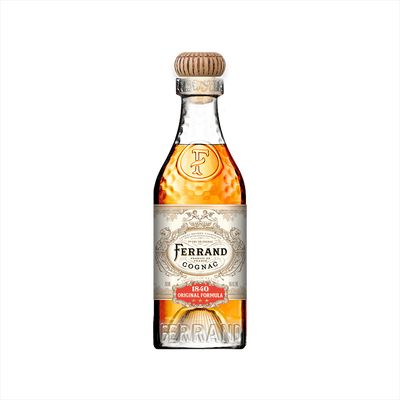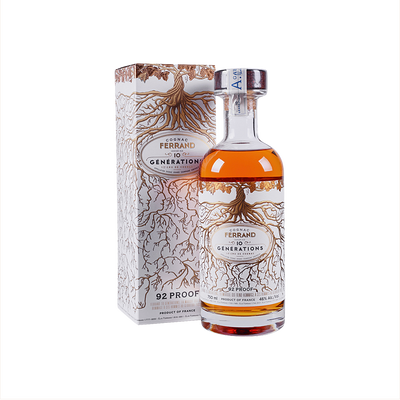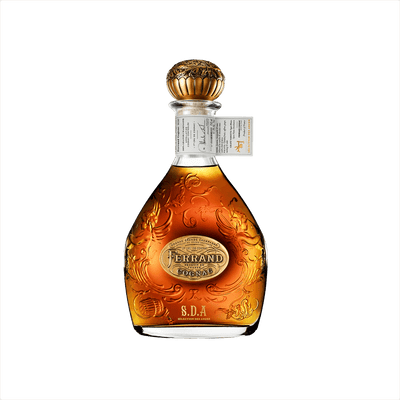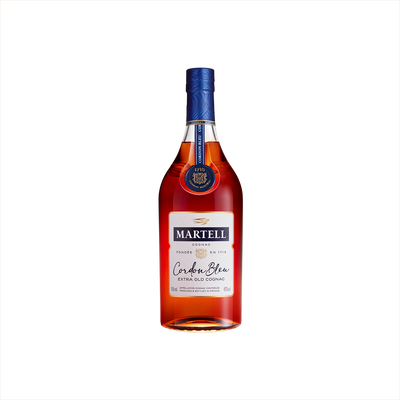Specialty Cognac
What is Specialty Cognac?
Specialty Cognac represents the artisanal and limited-edition expressions that push beyond traditional aging classifications like VS, VSOP, and XO. These unique bottlings often feature experimental cask finishes, single vineyard sources, or unusual production techniques that showcase the distiller's creativity and craftsmanship. What defines Specialty Cognac is its departure from conventional methods—whether through rare grape varieties, innovative aging processes, or small-batch production that results in distinctive flavor profiles you won't find in standard offerings.
Learn More About Specialty Cognac
What makes Specialty Cognac unique?
Specialty Cognac breaks free from traditional aging and blending conventions by focusing on experimental techniques, rare grape varieties, or distinctive production methods that set them apart from standard VS, VSOP, and XO expressions. These bottles often feature single-vineyard sourcing, unusual barrel finishes, or innovative distillation approaches that highlight specific terroir characteristics or push creative boundaries. What makes them truly special is their ability to showcase the producer's artistry and vision beyond the regulatory framework, offering cognac drinkers something genuinely different from the familiar house styles of major brands.
How is Specialty Cognac made?
Specialty Cognac follows the same fundamental production methods as traditional Cognac but incorporates unique approaches during distillation, aging, or blending that set it apart from standard expressions. These distinctive techniques might include extended aging in rare wood types, finishing in barrels that previously held other spirits, or blending eaux-de-vie from particularly exceptional vintages or specific vineyard plots. Master blenders often experiment with unconventional maturation methods or select only the most premium distillates to create these limited-edition or artisanal bottlings that showcase innovation within Cognac's strict AOC regulations.
How do you drink Specialty Cognac?
Specialty cognac deserves your full attention, so sip it neat at room temperature in a snifter or tulip glass to appreciate its complex aromatics and layered flavors. While some people enjoy it on the rocks, purists argue that ice dilutes the carefully aged spirit and masks its nuanced character. When specialty cognac does appear in cocktails, it's typically reserved for sophisticated classics like the Sidecar, Sazerac, or French Connection, where its premium quality can shine through rather than get lost in overly sweet or complicated mixes.
How do I choose good Specialty Cognac?
Start by understanding what makes it "specialty" – look for single vineyard expressions, unique aging methods like port cask finishing, or limited releases from smaller houses that offer something beyond the big-name VS and VSOP bottles. Your cocktail plans should definitely guide your selection: if you're mixing a Sidecar or French 75, a well-made XO with complex fruit notes will shine through, while simpler mixed drinks work beautifully with a quality VS that won't break the bank. For sipping neat, seek out those interesting cask-finished expressions or single estate bottlings that tell a specific story about their terroir and production methods.
Nutritional Information
Typical Calorie Range per Ounce: 65-70 calories
Typical Carbohydrate Range per Ounce: 0-0.5 grams
Typical Sugar Range per Ounce: 0-0.3 grams
Typically Gluten Free: Yes
Specialty cognacs are distilled from grapes and aged in oak barrels, which naturally makes them gluten-free since they contain no wheat, barley, or rye. The aging process may contribute minimal residual sugars from the oak, but these amounts remain negligible. Premium cognacs often have slightly higher caloric content due to their higher proof and longer aging periods that concentrate flavors and alcohol content.
Please check detailed product information on specific bottles to confirm gluten-free status, as production methods and additives can vary between producers.
Scrolled this far? Your reward? Specialty Cognac Trivia!
- Some of the world's most expensive cognacs contain liquid that's older than the United States itself. Hennessy Paradis Imperial includes eaux-de-vie dating back to 1818, meaning you could be sipping spirits that were aging in barrels when Napoleon was still plotting his comeback from exile.
- Rémy Martin actually owns a secret underground cellar called "The Cellar of Secrets" beneath their estate in Cognac, France, where they store experimental blends and one-off creations that may never see commercial release. Only a handful of master blenders have access, and some bottles inside are worth more than luxury cars.
- The angel's share in cognac aging isn't just lost alcohol—it creates a unique black fungus called Baudoinia compniacensis that grows on buildings throughout the Cognac region. This "cognac fungus" only appears where spirits are aging, turning entire neighborhoods dark and serving as a living map of where the magic happens.
- Martell once created a cognac specifically for the Russian Imperial Court that was so coveted, bottles were hidden in secret compartments during the Russian Revolution. Some of these bottles still surface at auctions today, complete with their original imperial seals, selling for astronomical prices to collectors who prize both the liquid and the revolutionary history.
- Camus created the world's first cognac designed specifically for cigar pairing by aging their spirit in barrels made from wood that had been exposed to tobacco leaves for years before coopering. The result is a cognac that naturally complements premium cigars without any artificial flavoring—pure wood alchemy at work.
Higher-proof spirits can be intense. Mix carefully, taste thoughtfully, and enjoy responsibly.
Gift message (optional)




